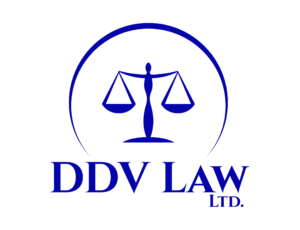A very popular lending program that allowed companies to receive funds to help keep their business afloat and then apply to have those loans forgiven if the money was spent according to the rules, is the Paycheck Protection Program (PPP). As the year ends, accountants are sharpening their pencils to prepare their clients’ 2020 tax returns but the IRS is telling businesses that if you used that money and you expect it to be forgiven then do not file for a deduction for expenses that were paid by using the loan funds. The IRS is taking the position that it would result in a double deduction.
The IRS issued a revenue ruling discussing their logic. (Rev. Rul. 2020-27) In the ruling the IRS addressed the common situation when a taxpayer received a loan under the PPP and paid certain otherwise deductible expenses and has a reasonable expectation of having that loan forgiven. The CARES Act laid out expenses that would qualify for deductions including certain payroll costs, mortgage interest on covered obligations, any covered utility payments and covered rent obligations. The taxpayer can then apply for forgiveness of the PPP loan. Many taxpayers will not have received a forgiveness determination from its lender before the end of the year or may not apply for forgiveness until after the new year. The deadline to apply for forgiveness is 10 months after the end of the covered period. (Please see our previous blog post on the timing of PPP loan forgiveness applications).
Under the CARES Act, the loan funds would not be includible towards the taxpayer’s gross income if those funds will ultimately be forgiven. The logic followed in the ruling is that if that money is going to be forgiven and it wasn’t counted as income why would the taxpayer then be able to take a deduction for expenses that were paid for with the funds that will ultimately be forgiven? This means that if this ruling stands the taxpayer will not take a deduction for those expenses on its 2020 tax return if they reasonably expect the loans to be forgiven in the future. If the taxpayer does not expect future forgiveness it can take the deduction.
This IRS instruction was not popular with accountants or with Congress. Both claim it is against the spirit of the CARES Act as well as the PPP loan program. Accountants do not like it when rules are unclear or could change and it looks like Congress is open to changing the rules regarding this point. Most Washington prognosticators believe that Congress will allow these deductions in the next Covid-19 relief bill. There is support to allow this “double deductibility” from both sides of the aisle. The catch – nobody knows when the next COVID-19 relief bill will get approved. It is rare that both Democrats and Republicans agree on anything but even this may be stuck in the quagmire at the Capitol.
Until this issue is resolved, accountants around the country are advising clients that filing for an extension may be the way to go as filing under an extension is preferrable to filing an amendment.
If your business received a PPP loan, funds were used for expenses that qualify for deductions and you expect the loan obligation to be forgiven in whole or in part please reach out to our office and we can discuss the best path moving forward into 2021. Please Contact our Chicago area offices by calling 312-878-0155 to schedule an appointment.

